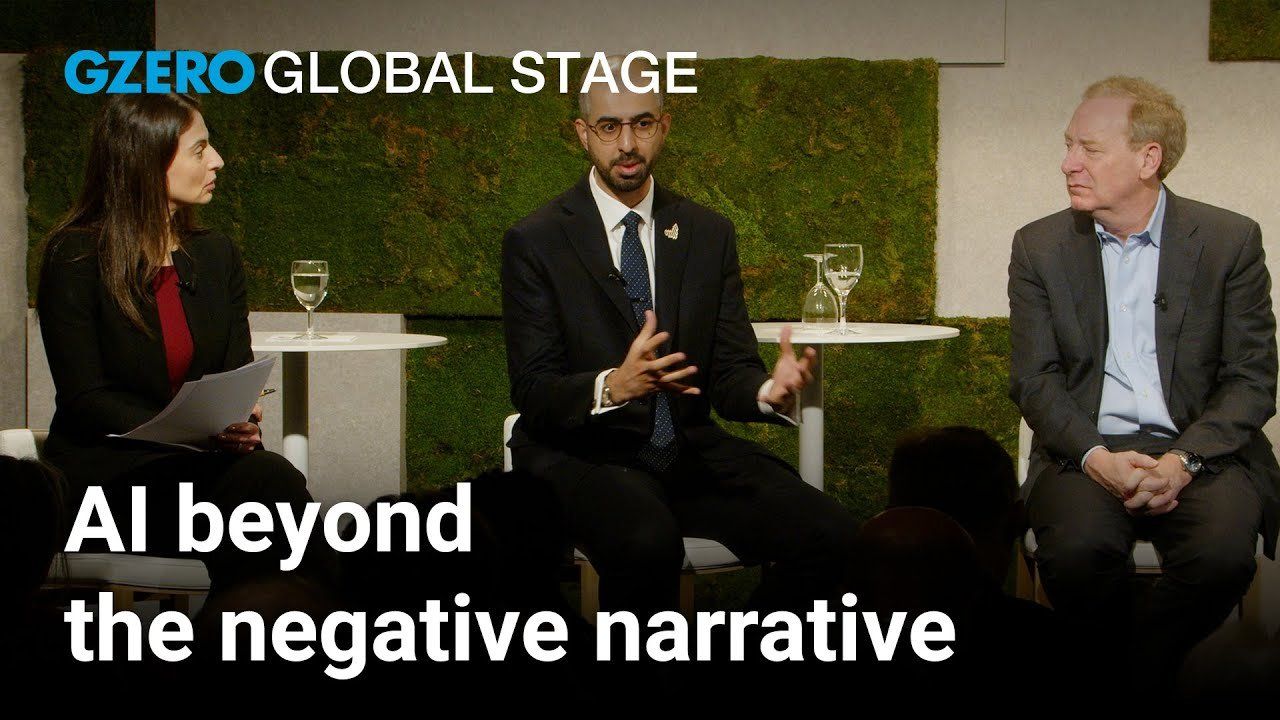Digital Governance
AI for good, AI for bad: Bringing balance to the force

AI for good, AI for bad: Bringing balance to the force | Global Stage

AI comes with a lot of stigma. Popular storylines in books and movies have trained us to see artificial intelligence as a bad actor that can take control over humanity and destroy us, says Omar Sultan al Olama, the UAE's Minister of State for Artificial Intelligence.
Minister al Olama, speaking in a GZERO Global Stage discussion from the 2024 World Economic Forum in Davos, Switzerland, highlights that in the UAE, AI development isn't just focused on productivity and economic gains, but on its potential to improve quality of life. One way to flip the script on AI as simply a scary tech straight out of a sci-fi thriller? Create more content that sheds light on AI's upsides, says al Olama.
The conversation was part of the Global Stage series, produced by GZERO in partnership with Microsoft. These discussions convene heads of state, business leaders, technology experts from around the world for critical debate about the geopolitical and technology trends shaping our world.
100 million: The number of people expected to watch the Super Bowl halftime performance with Bad Bunny, the Puerto Rican superstar and newly minted Album of the Year winner at the Grammys.
Think you know what's going on around the world? Here's your chance to prove it.
An imminent US airstrike on iran is not only possible, it's probable.
Americans are moving less — and renting more. Cooling migration and rising vacancy rates, especially across the Sunbelt, have flattened rent growth and given renters new leverage. For many lower-income households, that relief is beginning to show up in discretionary spending. Explore what's changing in US housing by subscribing to Bank of America Institute.